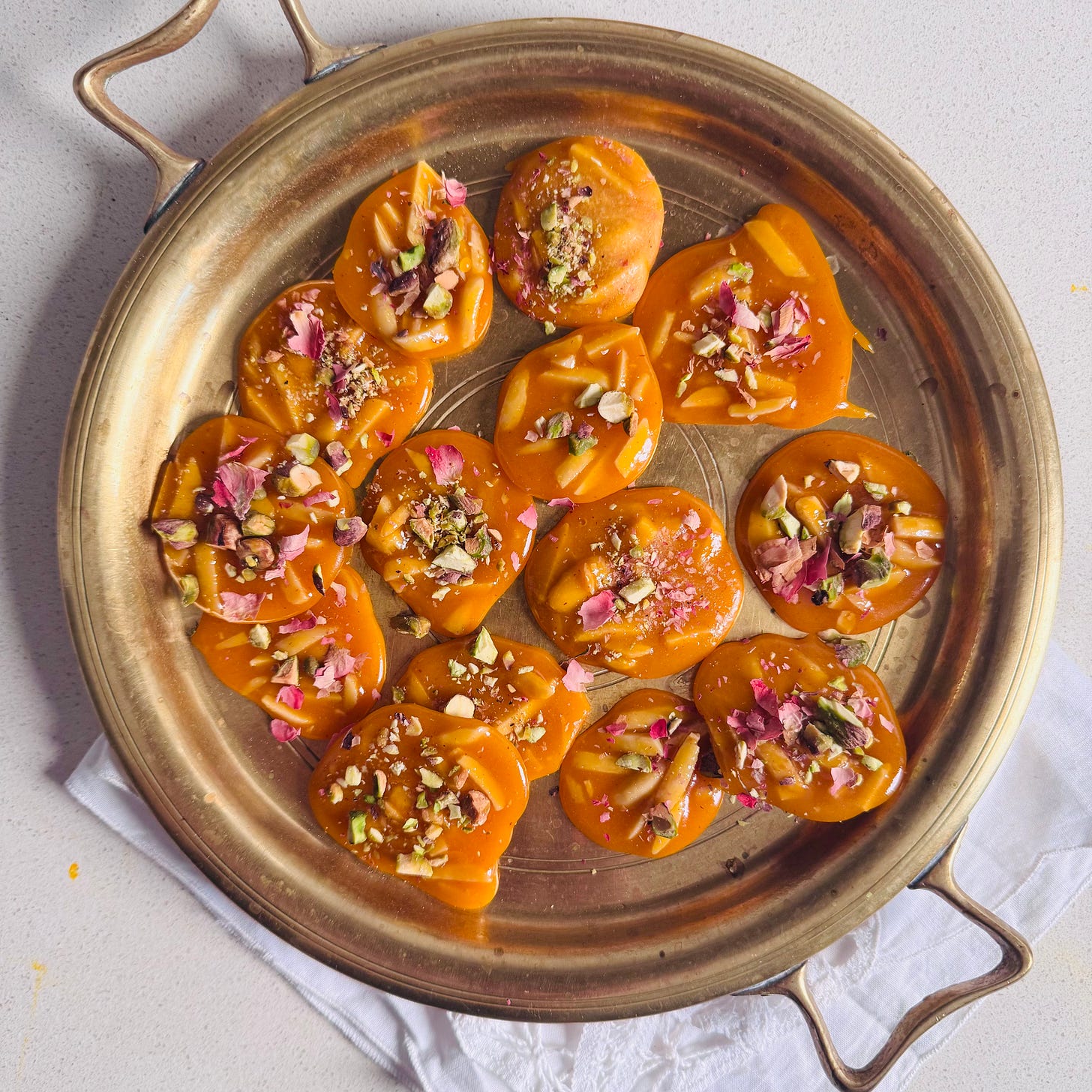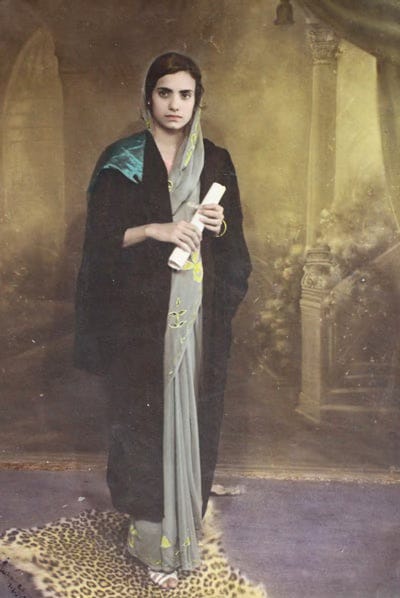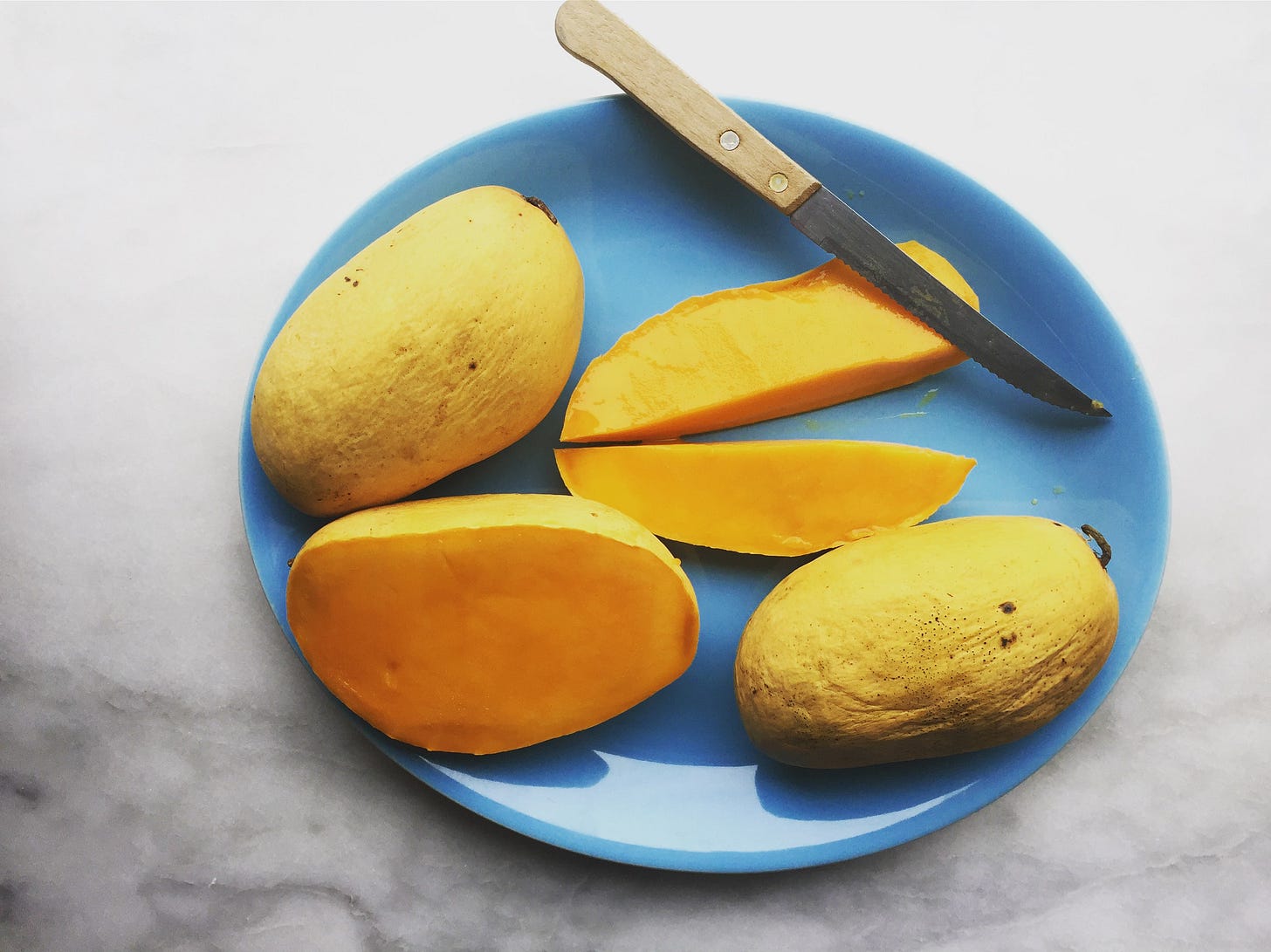I didn’t grow up celebrating Nowruz.
There was no sofreh haft-seen in our home. No hyacinths, no goldfish bowls, no dish with vinegar on the table.
And yet — here I am, making sohan asali with my son, baking rosewater cookies, feeling the pull of a new year.
So where does it come from, this pull to create new rituals — to mark the beginning of spring in a way that feels both old and newly mine?
Maybe it begins with Mader.
Mader was my father’s mother. ‘Mader’ means mother in Farsi, and that’s what we all called her. Not just us, her grandchildren — but everyone in Lahore: the electrician who came to our house in Gulberg, the man selling vegetarian patties at Ajmer Bakery, even my school friends.
Her name was Shameem Saadat, but to everyone, she was simply Mader.
She wasn’t one for nostalgia. A double mastectomy and emphysema does that to you, I suppose. She was sharp, elegant, and unsentimental — the kind of woman who quoted Shakespeare over lunch and expected you to keep up. Born in 1916, the daughter of a widowed mother who raised four daughters on her own, Mader went on to earn an MA in Economics — one of the first women in Pakistan to do so.
When I lived with her as a teenager, we had lunch together every day. The food was made by the cook: spiced tomato stews with naan from the tandoor, aubergine raita, sliced mangoes with thick cream. But Mader was always there — composed, witty, constant.
I really loved her, though I didn’t know how to say it. Our relationship was layered; I had been sent to live with her in Lahore after being bullied at school in Washington, D.C., and I arrived carrying more than just a suitcase.
She did cook, but never the everyday meals. The practical, day-to-day cooking she left to the household staff. When she did step into the kitchen, it was to make French apple tarts, roast chicken with crackly skin, or crème anglaise — recipes she had learned at the French Cultural Institute in Lahore.
Mader spoke perfect Farsi. My father tells me her grandfather was a Sufi Saint from Khorasan — the northeastern province of Iran, the land of saffron and sunrises — who settled in Lahore (he married for love) and never went back.
And though I didn’t grow up celebrating Nowruz, somehow, I carry pieces of it — in the joy I find buying tulips to mark the first day of Spring, or in the saffron sweets my son and I make together, burning the sugar, then starting over again.
Every year around the spring equinox, I think of Mader.
I bake something touched with rosewater — something she would have loved.
Some rituals are inherited and carried forward. Others we create — shaped by time, by family history, and by who we’ve become.
A new year.
A new table.












